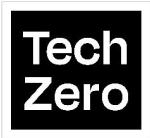Life cycle assessment (LCA) can be quite expensive, costing between $30,000 – $50,000 or more per product depending on its complexity. The largest cost associated with conducting an LCA lies in the data collection and calculation, which LCA practitioners deem as the most difficult part of doing an LCA. However, embarking on a journey towards sustainability doesn’t have to break the bank or take forever. Here’s a guide on how to conduct faster and more cost-effective Life Cycle Assessments (LCAs) without compromising on quality.
1. Precise Scope Definition
Begin by clearly defining the scope of your LCA. Identify the specific goals, boundaries, and depth of your assessment. A well-defined scope prevents unnecessary data collection and streamlines the entire process.
2. Embrace Simplicity in Data Collection
Complex data collection can be a bottleneck. Opt for simplicity by focusing on essential data. Prioritize primary data sources, and whenever possible, utilize existing databases or industry averages to minimize the need for extensive, time-consuming surveys.
3. Leverage Sustainability Software
Investing in dedicated LCA software can significantly speed up the process. These tools often come with built-in databases, streamlined workflows, and automation features. While there might be an initial cost, the time saved and accuracy gained can outweigh the investment.
4. Data Sharing and Collaboration
Explore opportunities for collaboration within your industry. Sharing relevant data with other organizations or collaborating on joint LCA efforts can reduce costs for everyone involved. It’s a win-win situation that fosters a collective approach to sustainability.
5. Focus on Key Impact Categories
Identify the key impact categories that matter most to your product or process. Concentrating on these categories allows for a more targeted and efficient LCA. It streamlines data collection and analysis, saving both time and resources.
6. Continuous Improvement Loop
View LCA as an iterative process. Conducting LCAs regularly enables you to refine and improve your methods over time. Each cycle enhances efficiency and accuracy, creating a continuous improvement loop.
7. Training and Capacity Building
Invest in training your team or individuals responsible for LCA. A well-trained team can navigate the process more efficiently, ensuring that data collection and analysis align with best practices.
How Carbonbright Can Help You Conduct Cheaper and Faster LCAs
CarbonBright is changing the way Life Cycle Assessments (LCAs) are done, making them quicker and budget-friendly. We’ve created a tool that streamlines the entire process, removing the need for time-consuming searches in databases. The software smartly matches emissions activities and takes geography into account, offering companies an easy-to-use, tech-driven solution for evaluating and communicating environmental impacts. In essence, CarbonBright helps companies perform LCAs in an affordable and speedy manner.
By following these strategies, you can conduct LCAs that are not only budget-friendly but also swift and responsive to your sustainability goals. Sustainability shouldn’t be a luxury – it’s a journey that can be both economically and environmentally sound.
